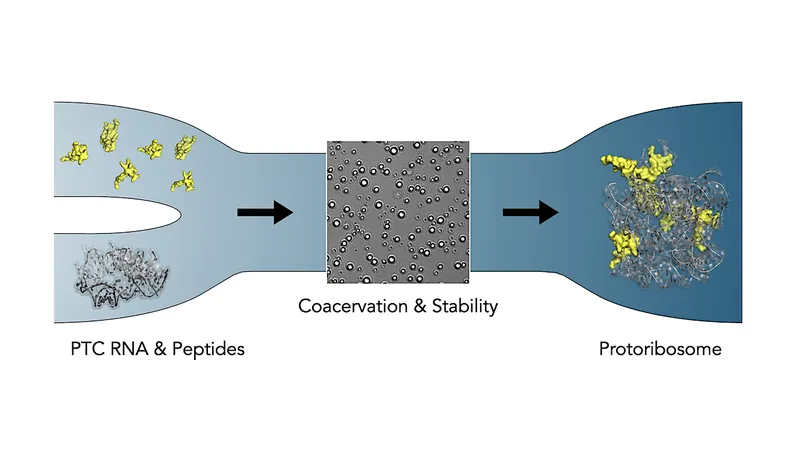
Unearthing the Secrets of Ancient Protoribosomes: A Revolutionary Study on Life's Beginnings
2024-10-02
Author: Rajesh
Introduction
In a groundbreaking revelation, scientists have shed new light on the protoribosome, a molecular fossil integral to our understanding of the origins of life on Earth. A recent study published in *Nucleic Acids Research* promises to reshape our comprehension of the ribosomal evolution and could even alter the evolutionary narrative of life itself.
Research Team and Findings
Led by a dynamic research team, including Dr. Klára Hlouchová from Charles University and Dr. Kosuke Fujishima from the Earth-Life Science Institute in Tokyo, this investigation dives deep into the biological processes that predate the emergence of cellular life. 'Interactions among nucleic acids, proteins, and lipids began more than 4 billion years ago, paving the way for the first living organisms,' states Dr. Hlouchová, highlighting the complexity of early biological systems.
Ribosomal Importance
Ribosomes, the quintessential protein-producing machinery found in all forms of life, are not just modern-day cellular components but are integral clues to our biological ancestry. Their conserved nature across different species makes them significant in evolutionary biology, uncovering the connection to our distant past.
A Major Breakthrough: The Role of rPeptides
At the center of this study is the protoribosome, which encircles the peptidyl transferase center (PTC) responsible for the formation of peptide bonds—an indispensable mechanism in protein synthesis. Interestingly, earlier research suggested that RNA could perform PTC activities independently. However, this new study reveals that specific ribosomal protein fragments known as rPeptides play a crucial role in stabilizing the protoribosome.
Constructs and Their Characteristics
The study focused on two evolutionary stages of protoribosomal RNA: the 'big' construct of 617 nucleotides and the 'small' construct of 136 nucleotides, with the latter being linked to previous findings on PTC activity. The small construct exhibited greater flexibility and facilitated a coacervation process, which is vital for protecting RNA from degradation. In contrast, the big construct showed a stronger interaction with rPeptides, leading to increased structural definition.
Evolutionary Significance: A Prelude to Complex Life
What makes these findings particularly exciting is their implications for the evolution of life. The interaction between RNA and proteins before the advent of life as we know it reveals a biophysical advantage that enhanced stability and compartmentalization. This pre-life RNA-protein dynamic hints at the evolutionary processes leading to more complex organisms, emphasizing that the foundations of biology may have been laid far earlier than previously thought.
Conclusion
The study emphasizes the necessity of rPeptides in maintaining the structural integrity of early ribosomal components, suggesting that these interactions were crucial long before the formation of the modern ribosome. Funded by the Human Frontiers Science Foundation and the 4EU+ European University Alliance, this research not only sheds light on the ancient mechanisms that predate life but also opens new avenues for understanding the molecular building blocks that led to complex life forms.
In summary, this new revelation regarding the protoribosome's role underscores a critical chapter in the story of life on Earth—a compelling testament to the elegant molecular evolution that has shaped every organism, including ourselves. As researchers continue to probe the depths of molecular biology, we inch closer to unraveling the mysteries of how life began on our planet.



 Brasil (PT)
Brasil (PT)
 Canada (EN)
Canada (EN)
 Chile (ES)
Chile (ES)
 España (ES)
España (ES)
 France (FR)
France (FR)
 Hong Kong (EN)
Hong Kong (EN)
 Italia (IT)
Italia (IT)
 日本 (JA)
日本 (JA)
 Magyarország (HU)
Magyarország (HU)
 Norge (NO)
Norge (NO)
 Polska (PL)
Polska (PL)
 Schweiz (DE)
Schweiz (DE)
 Singapore (EN)
Singapore (EN)
 Sverige (SV)
Sverige (SV)
 Suomi (FI)
Suomi (FI)
 Türkiye (TR)
Türkiye (TR)